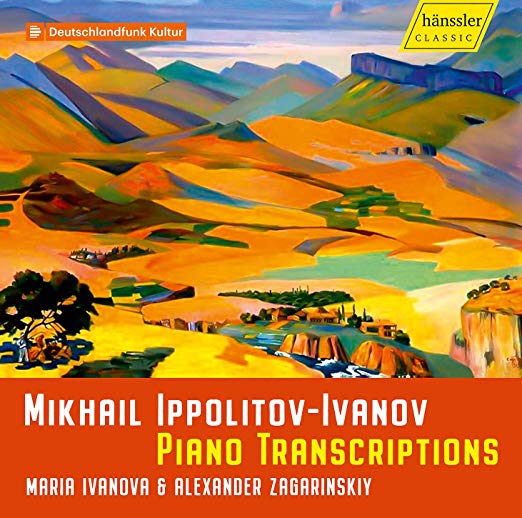
ESSENTIAL RECORDINGS

Caucasian Sketches Suite No. 1, Op. 10 - In a Mountain Pass - In a Village - In a Mosque - Procession of the Sardar Armenian Rhapsody, Op. 48 Prelude from the Opera "Ruth", Op. 34 Turkish March, Op. 55 Caucasian Sketches Suite No. 2, Op. 42 - Introduction: Lamentation of Princess Ketevana - Berceuse - Lezghinka - Georgian March
If you're of a certain age, I'm sure you are familiar with the Caucasian Sketches by Russian composer Mikhail Ippolitov-Ivanov (1859-1935). The Procession of the Sardar in particular was always used as a showstopper during concerts featuring orchestral fireworks, and was often performed alongside Tchaikovsky's Marche Slave or Borodin's Polovtsian Dances. And during the early days of "stereo" recordings, conductors like Arthur Fiedler and Leopold Stokowski were some of the first to include it on collections of short potboilers. His music is highly melodic and colorful, and as short tone paintings, always evokes vivid imagery. It's a pity his name has gradually fallen to the wayside.
Pianists Maria Ivanova and Alexander Zagarinskiy, who have been working together as a piano duo since 2004, remedy this situation by offering us impressive 4-hand transcriptions of these orchestral gems. (The booklet notes don't mention this, but I assume that these are original transcriptions by the Ivanova/Zagarinskiy duo). And delightful arrangements they are. Who needs a large orchestra when only four hands can faithfully reproduce the majestic splendour of mountains, the mysterious solitude within a mosque, or the pomp and pageantry of a special occasion. They perform this music as if through a symbiotic understanding of each other with perfectly balanced dynamics and expressive flair that always allow the main melody to float to the surface regardless of the many extraneous notes generating the orchestral scope of any given piece. The dynamic vitality they bring to the Procession of the Sardar for example is quite remarkable, as well as the sense of an ancient past they evoke within the Armenian Rhapsody.
If you enjoy the music of Mikhail Ippolitov-Ivanov and are a piano enthusiast, or would simply like to encounter the music of this composer for the first time, this new recording is a must.
Jean-Yves Duperron - November 2019